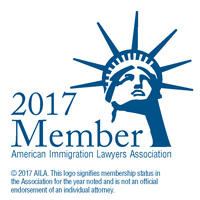This guide to the B-1 visa is part of our series of guides on US visa types that covers the various visas available, along with the non-immigrant visa process. If you are looking for information about the B-1 visa, you are in the right place. Please keep reading. If you having a problem, and know you need help, please contact us to schedule a consultation.
Do You Need a B-1 Visa?
Before discussing obtaining or using a B-1 visa, we should review whether you need that visa. You do not need one if you are you are visa exempt. Likewise, you do not need a visa if you are eligible for the Visa Waiver Program. Canadians are generally visa exempt. So if you are a Canadian wishing to enter the United States for a purpose covered by the B-1 visa, you would not need that visa. Instead, you would apply for admission either at the border or at an airport. Just because you do not need B-1 visa does not mean that you are document exempt. We have helped quite a few Canadians with entry to the United States who had complicated cases.
Likewise, many countries are now covered by the Department of State’s (DOS) Visa Waiver Program. Residents of qualifying countries are exempt from the requirement that they get a B-1 business visa to enter the United States. While the Visa Waiver Program makes travel and entry to the United States easy, by its terms the DOS restricts people who use it to 90 days in the United States with no extension of stay or change of status possible. A business visitor may find these constraints a problem, and thus he would still apply for the B-1 visa even though he is eligible for the Visa Waiver Program.
US Activities Covered by the B-1 Business Visa
Activities the DOS permits under the B-1 visa relate to business either commercially or professionally. These broad categories cover a wide range of activities. Examples include:
- Surveying potential sites for a business
- Attending business events such as conferences, meetings, or trade shows
- Lecturing or speaking at a conference
- Conducting research
- Exhibiting products or taking orders along with negotiate in signing contracts for products
- Providing after sales service
- Participating in a training program
For each of these general activities the DOS provides detailed guidance through its policy manual on what it permits and denies under each heading. For example, under the heading surveying potential sites for a business, a person whose ultimate goal is either an E-2 investor visa or a green card through the EB-5 program may receive a B-1 visa. But, the DOS prohibits the investor’s labor within that business or managing it while in B-1 status. If you have any questions about your proposed use of the B-1 visa, we can advise you through our strategy consultation.
Qualifying for the B-1 Visa
In thinking about what an applicant must show to qualify for a B-1 visa, it is helpful to think about the visa from the DOS perspective. All letter visas – A, B, C, etc – are nonimmigrant visas. You must thus show that you are not an immigrant if you want to be successful in your application. A review of this list illuminates this point.
- Purpose for visiting the United States is business or professional
- Plan is to remain in the United States for a specific period
- You have the necessary funds to cover the cost of your trip and just stay in the United States
- Residence in your home country that you do not intend to abandon
- You have other ties to your home country like family or a job such that it is clear you will return there
Meeting all these criteria, and being able to prove these facts in the required visa interview ensures your application success.
Application Process and Entry
Once you understand that you qualify for the B-1 visa, you can move from reviewing the category to apply for the visa. We have guides covering the process of applying for the visa, entry into the United States and obtaining evidence of your admission, the I-94. Please review them so that you understand this process and it holds no surprises for you.
How We Can Help
For many business visitors to the United States, the process will be simple. They will either qualify for the Visa Waiver Program or they are visa exempt. Alternatively, their purpose in entering the United States fits within one of the categories discussed above. In short everything works well and the services of an experienced immigration lawyer are not required. But, for others who have more difficult cases or run into difficulty either at the visa appointment or the border having the help of an experienced immigration attorney means the difference between success and failure. If you would like our help, please contact us for a strategy consultation.
